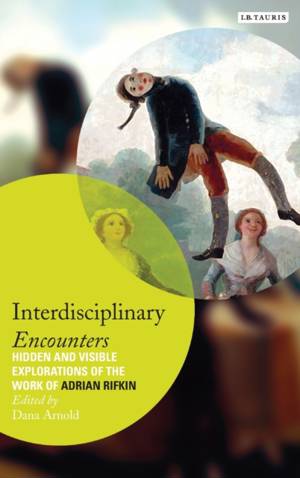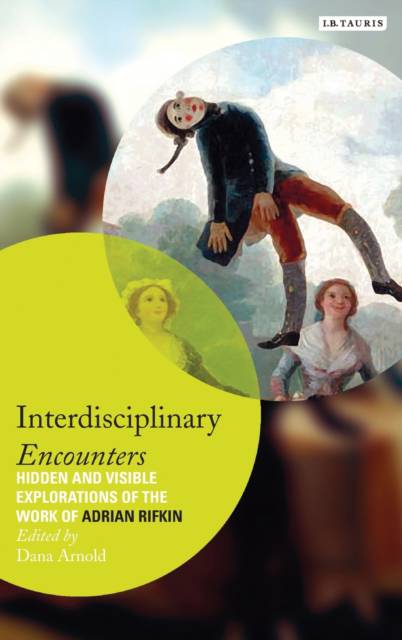
- Retrait gratuit dans votre magasin Club
- 7.000.000 titres dans notre catalogue
- Payer en toute sécurité
- Toujours un magasin près de chez vous
- Retrait gratuit dans votre magasin Club
- 7.000.0000 titres dans notre catalogue
- Payer en toute sécurité
- Toujours un magasin près de chez vous
Interdisciplinary Encounters
Hidden and Visible Explorations of the Work of Adrian Rifkin
296,95 €
+ 593 points
Description
For over four decades, art historian and cultural theorist Adrian Rifkin has been producing visionary and esoteric work, influencing a variety of artists and scholars. Inspired by Rifkin's innovative work in the field, Interdisciplinary Encounters offers an exploration of the question of 'interdisciplinarity' in cultural and visual studies. In it, close readings of specific artwork engage with aspects of Rifkin's work as diverse as Parisian urban formation, queer theory, the breathless subject and the object of art history itself. As the contributors reflect on how their own methodologies have interacted with Rifkin's, the common thread throughout these contributions becomes the interweaving of the seemingly disparate itself, both exploration and demonstration of the Rifkinian refiguring and redeployment of critical concepts within different fields of the study of culture and the visual.
The scholarly contributions range from the artefactuality of objects and the seduction of the hidden to the question of how the past is made visible to us, to the relationship between mourning, the image and writing in art criticism's 1990s turn towards the personal. Grounded in different aspects of Rifkin's writings - the relationship between art and industry, pedagogical practices, reimagining historicity - these acclaimed scholars are by turns transgressive, meditative, incisive and revolutionary in an implicit argument for the value of Rifkin to teaching and learning, thinking and writing.
Finally, Rifkin responds in a (non-) conclusion, unfolding his own travels through Marxism, feminism, psychoanalysis and queer theory and asking what has been jettisoned along the way, deconstructing the iconography of the self and questioning what can be achieved by revisiting the fault-lines of our pasts and investigating the alternative histories of our critical selves. Interdisciplinary Encounters is a unique collaboration between the subject and object of Rifkin's groundbreaking writing, opening up new vistas of interdisciplinary interaction for researchers of art history and cultural studies.
The scholarly contributions range from the artefactuality of objects and the seduction of the hidden to the question of how the past is made visible to us, to the relationship between mourning, the image and writing in art criticism's 1990s turn towards the personal. Grounded in different aspects of Rifkin's writings - the relationship between art and industry, pedagogical practices, reimagining historicity - these acclaimed scholars are by turns transgressive, meditative, incisive and revolutionary in an implicit argument for the value of Rifkin to teaching and learning, thinking and writing.
Finally, Rifkin responds in a (non-) conclusion, unfolding his own travels through Marxism, feminism, psychoanalysis and queer theory and asking what has been jettisoned along the way, deconstructing the iconography of the self and questioning what can be achieved by revisiting the fault-lines of our pasts and investigating the alternative histories of our critical selves. Interdisciplinary Encounters is a unique collaboration between the subject and object of Rifkin's groundbreaking writing, opening up new vistas of interdisciplinary interaction for researchers of art history and cultural studies.
Spécifications
Parties prenantes
- Editeur:
Contenu
- Nombre de pages :
- 288
- Langue:
- Anglais
- Collection :
Caractéristiques
- EAN:
- 9781780767024
- Date de parution :
- 21-11-14
- Format:
- Livre relié
- Format numérique:
- Genaaid
- Dimensions :
- 157 mm x 236 mm
- Poids :
- 589 g

Les avis
Nous publions uniquement les avis qui respectent les conditions requises. Consultez nos conditions pour les avis.





